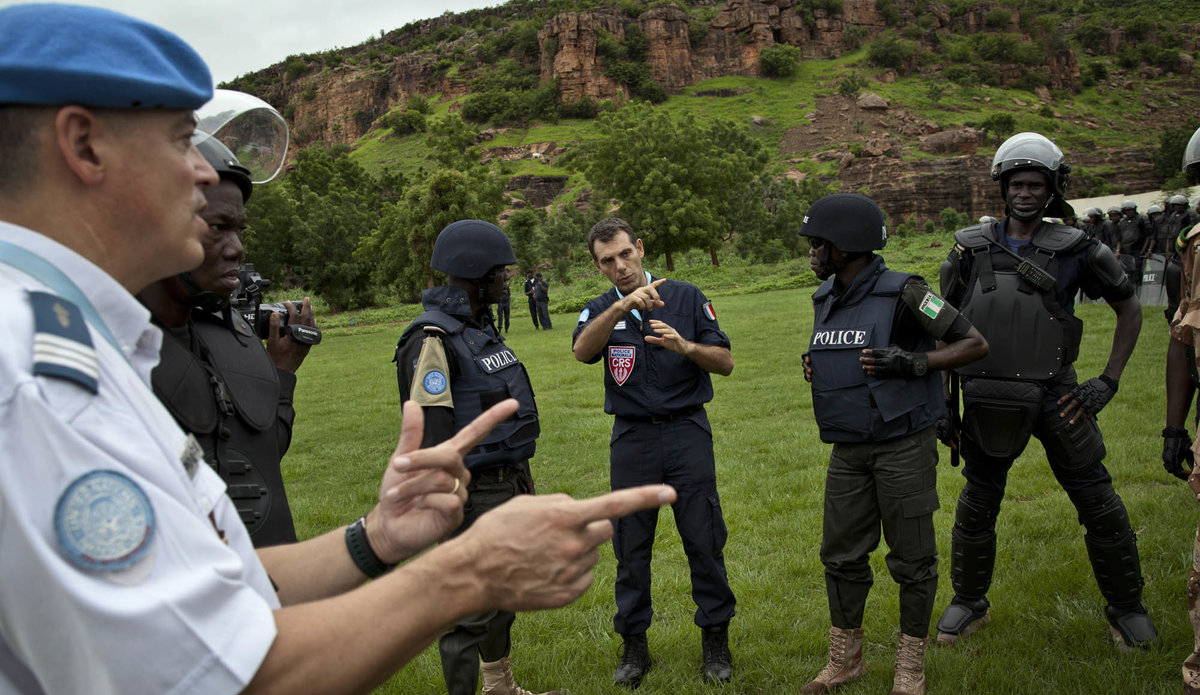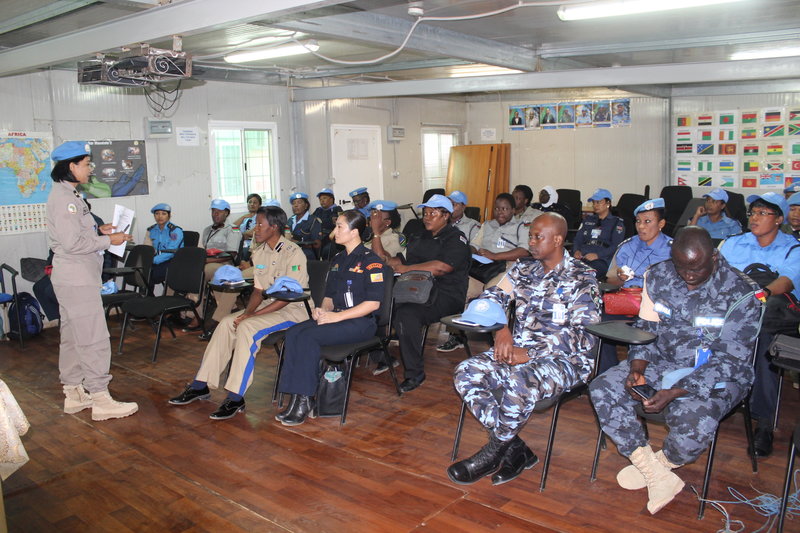While General Assembly resolution 49/37 (1995) recognized that the training of personnel for peace operations is the responsibility of Member States, the Police Division supports Member States in this important endeavour by defining the necessary standards and guidelines. It also cooperates closely with the Integrated Training Service in the Departments of Peacekeeping Operations and Field Support, responsible for peacekeeping training.
Training of trainers
Police officers do not automatically possess the skills required for training and mentoring host-state police officers. Therefore, UN Police officers involved in training today must have undergone a training of trainers programme. They should also possess the skills to establish a strong curriculum, with a built-in mechanism by which evaluations and honest feedback from trainees can be integrated into a steadily improved training and mentoring package. For successful mentoring and training, interpersonal and language skills as well as cultural sensitivity are essential.
Importance of well-trained officers
The Security Council mandates on UN Police to help reform, restructure and rebuild host-state policing institutions necessitate qualified experts in areas such as change management, operations, organizational development, finance, administration, and human resources. For this specialized skills, as well as soft skills are important.
Equally, UN police missions that undertake technical assistance projects need personnel with expertise in programme and project management, planning and budgeting. Professionals with such backgrounds and profiles do not necessarily have to be uniformed or have a background in basic policing.
UN Police are involved in complex reform, restructuring and rebuilding programmes and special advisers and experienced police officers are increasingly in demand in order to support host-state authorities in undergoing ambitious legal reform, establishing legislative frameworks, capacity-building and institutional restructuring.
Correspondingly, as UN Police engage in specific and specialized tasks, such as forensics, border management, maritime and riverine policing, criminal information analysis, transnational organized crime, including trafficking in human beings, drugs and weapons, and criminal investigation procedures, police officers and advisers with substantial backgrounds in these fields need to be recruited.
Mandatory training for Individual Police Officers
Individual Police Officers have to complete the following mandatory trainings:
- Basic Security in the Field
- Advanced Security in the Field
- Integrity Awareness Initiative
- Prevention of Workplace Harassment, Sexual Harassment, and Abuse of Authority in the Workplace
This course requires an individual user profile to be created in inspira, at https://careers.un.org. Once created, select ‘Main Menu’, followed by ‘Self Service’, followed by ‘Learning’, followed by ‘My Learning, then ‘Browse Catalog’, select ‘Working for the UN’, and then ‘Mandatory Training’ and finally the “Prevention of Workplace Harassment, Sexual Harassment, and Abuse of Authority in the Workplace” link.
Available training materials
- Visit the training page for Individual Police Officers to find out more about the training materials available.
- Visit the training page for formed police units to find out more about the training materials available.
- Or visit the page for police officers on professional posts.


